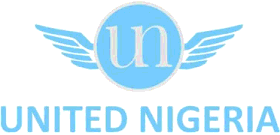 United Nigeria Airlines’ Boeing 737-800 Deal Signals Major Leap in Nigeria’s Aviation Ambitions
United Nigeria Airlines’ Boeing 737-800 Deal Signals Major Leap in Nigeria’s Aviation Ambitions
United Nigeria Airlines has taken a decisive step toward reshaping its future and reinforcing Nigeria’s influence in the global aviation industry by finalizing a significant purchase agreement for six Boeing 737-800 aircraft. The landmark deal, recently announced in Dallas, United States, is poised to transform the airline’s operational capabilities, underpinning a strategy that aims to expand both regional and international networks while accelerating growth across the West African aviation sector.
The decision to invest in the 737-800 model is strategic on several fronts. Renowned for its fuel efficiency, extended range, and passenger comfort, the Boeing 737-800 is a mainstay among leading carriers worldwide. For United Nigeria Airlines, these aircraft will not only increase seat capacity and route flexibility but will also help lower operational costs and reduce the airline’s environmental footprint—a consideration increasingly critical for airlines eyeing sustainability and long-term viability.
Executive Chairman Professor Obiora Okonkwo hailed the agreement as a “turning point” after four years of steady operations. The delivery of these aircraft, he emphasized, will unlock new market opportunities by enabling United Nigeria Airlines to launch new routes, particularly to untapped regional destinations and select long-haul markets. This expansion is expected to have a ripple effect across Nigeria’s economy, generating thousands of new jobs in aviation and related sectors, and providing a reliable boost to both passenger and cargo transport capabilities.
Beyond the hardware, the partnership with Southwest Airlines carries added value through comprehensive support in training and maintenance. This transfer of expertise is expected to enhance United Nigeria Airlines’ operational standards, safety protocols, and technical proficiency. As African carriers strive to compete with global players, such collaborations become essential for building sustainable growth and ensuring top-tier service delivery in a competitive market.
The agreement also includes an option for the acquisition of four additional Boeing 737-800s by 2027, which would bring the airline’s total order to ten aircraft. This phased approach to fleet expansion allows United Nigeria Airlines to scale strategically, responding to evolving market demand while ensuring operational readiness at each stage.
On the global stage, Boeing’s Vice President for Commercial Sales and Marketing in Africa, Anbessie Yitbarek, welcomed United Nigeria Airlines into the “737 family,” underscoring the company’s growing footprint in Africa. The deal was brokered by SkyWorks Holdings, whose leadership praised the agreement as a much-needed boost for the continent’s aviation sector, signaling confidence in Africa’s long-term growth prospects and the ability of its carriers to compete regionally and internationally.
This new wave of fleet modernization is particularly timely as Nigeria continues to experience a surge in air travel demand, driven by a rising middle class, rapid urbanization, and increased business and leisure mobility. The introduction of the Boeing 737-800s will enable United Nigeria Airlines to meet this demand with enhanced frequency, improved reliability, and greater network connectivity. For the wider sub-Saharan African market, this move sets a benchmark for operational ambition, highlighting the importance of investing in modern aircraft and robust airline partnerships.
Travel sector stakeholders across Africa can expect several benefits from United Nigeria Airlines’ expansion. Enhanced route options and capacity will create new opportunities for tour operators, hotel groups, and event organizers to build tailored travel products around direct flights and improved schedules. Cargo operators will also gain from increased lift and the potential to open up new trade corridors, supporting economic diversification and regional integration.
The environmental implications of the 737-800 fleet should not be underestimated. As airlines globally face mounting pressure to adopt sustainable practices, the addition of fuel-efficient aircraft is a crucial step. United Nigeria Airlines’ investment in this technology demonstrates its commitment to aligning with international best practices and responding to the growing expectations of eco-conscious travelers and business partners.
Looking ahead, the successful integration of the Boeing 737-800s will require careful planning and coordination. Workforce development, ongoing technical training, and investments in maintenance infrastructure will be key to maximizing the new fleet’s potential. The partnership with Southwest Airlines promises to deliver these critical elements, helping United Nigeria Airlines scale its operations without compromising safety or service standards.
For Africa’s travel professionals, United Nigeria Airlines’ bold move is both a signal and a challenge. It underscores the necessity of innovation, forward-thinking investment, and international collaboration in an increasingly interconnected industry. The coming years will see Nigeria’s aviation landscape evolve rapidly, with United Nigeria Airlines positioned at the forefront of this transformation. The airline’s expanded reach, modern fleet, and strengthened operational foundation will not only shape Nigeria’s future as an aviation hub but also inspire similar ambition across the continent.
